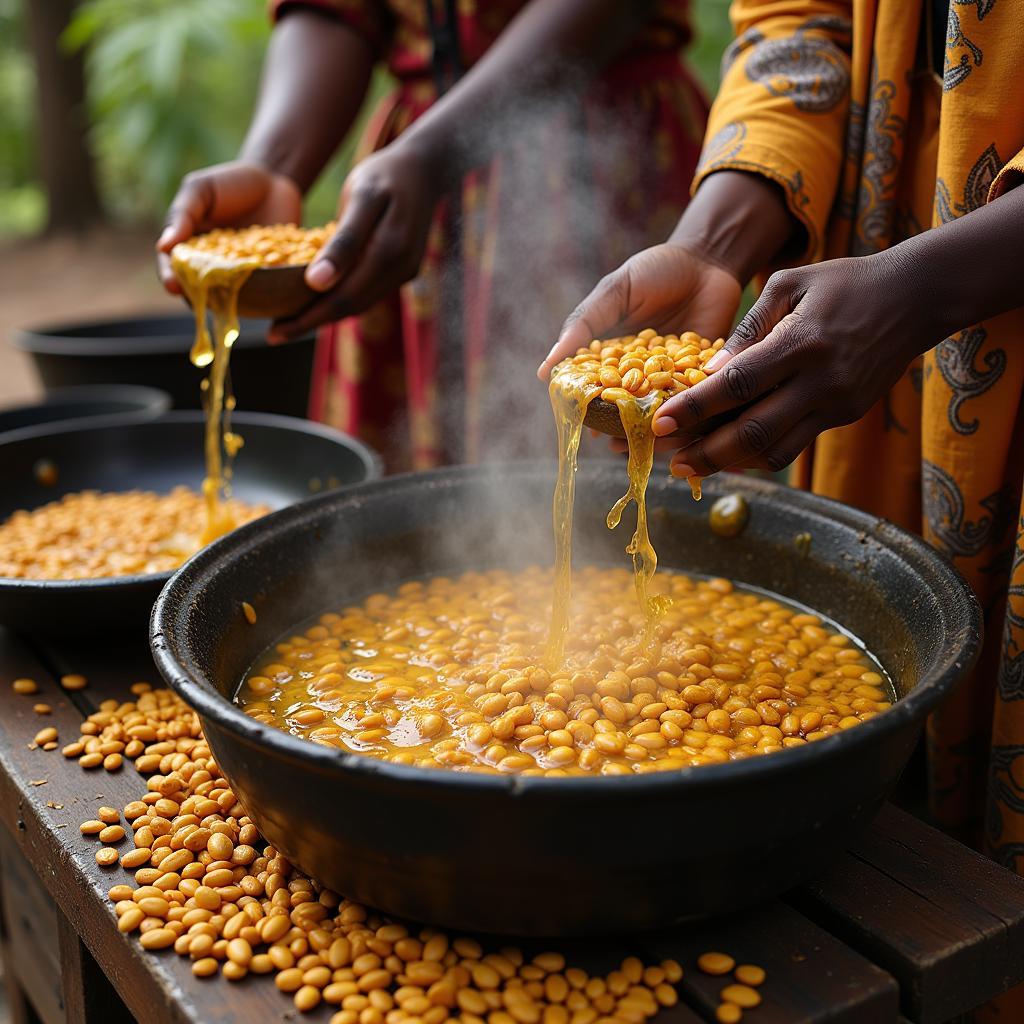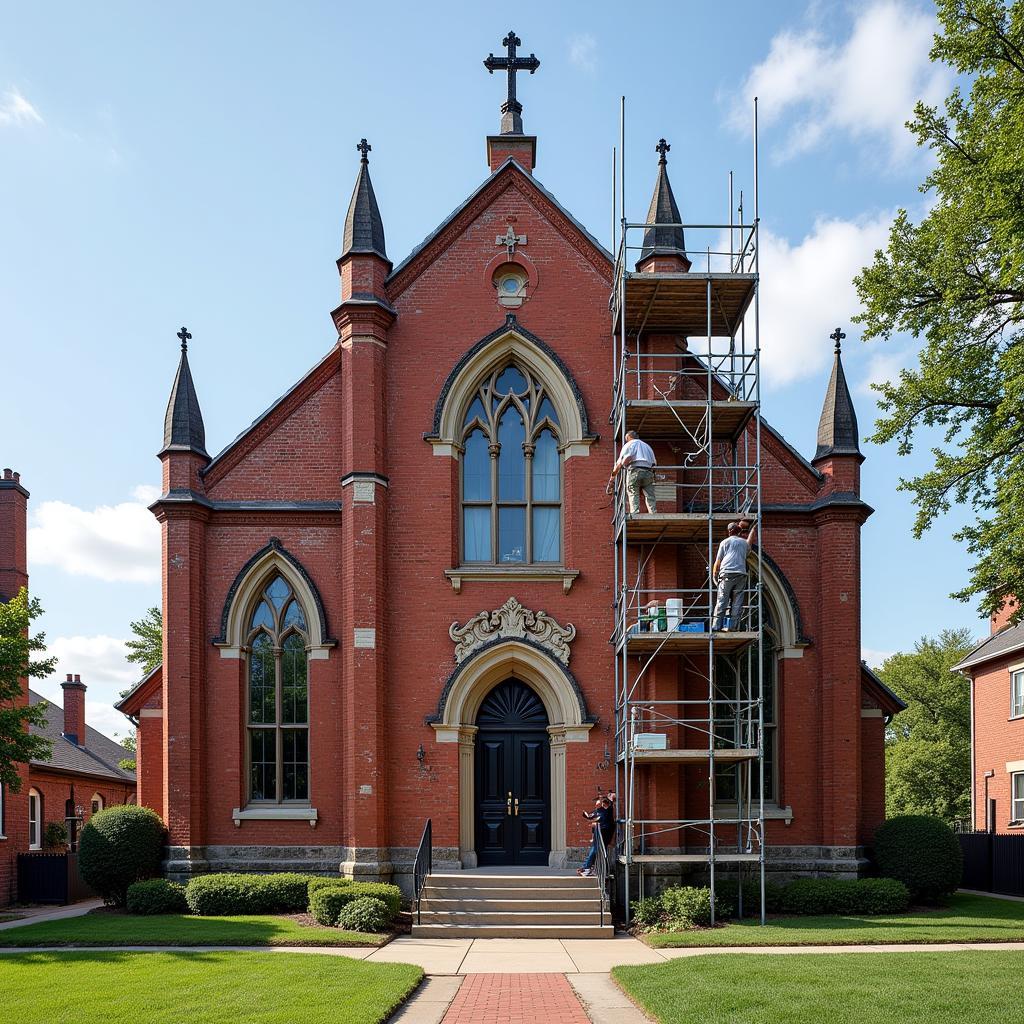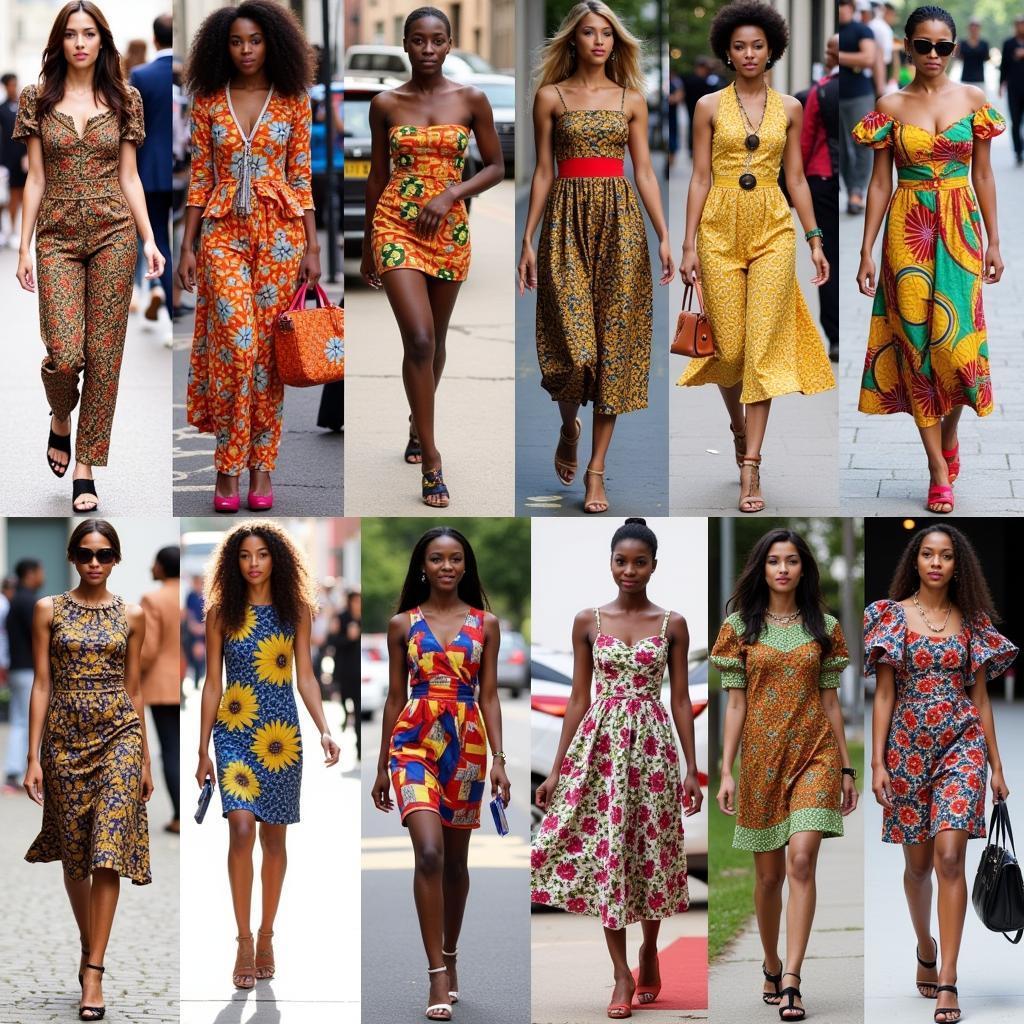African Dress for Men: A Rich Tapestry of Culture and Style
African Dress For Men is a vibrant expression of the continent’s diverse cultures and rich history. From the flowing robes of the Sahara to the intricately patterned shirts of West Africa, men’s clothing in Africa is as varied as the people themselves. More than just fabric and design, these garments tell stories of tradition, social status, and personal identity.
Unveiling the Diversity of African Men’s Clothing
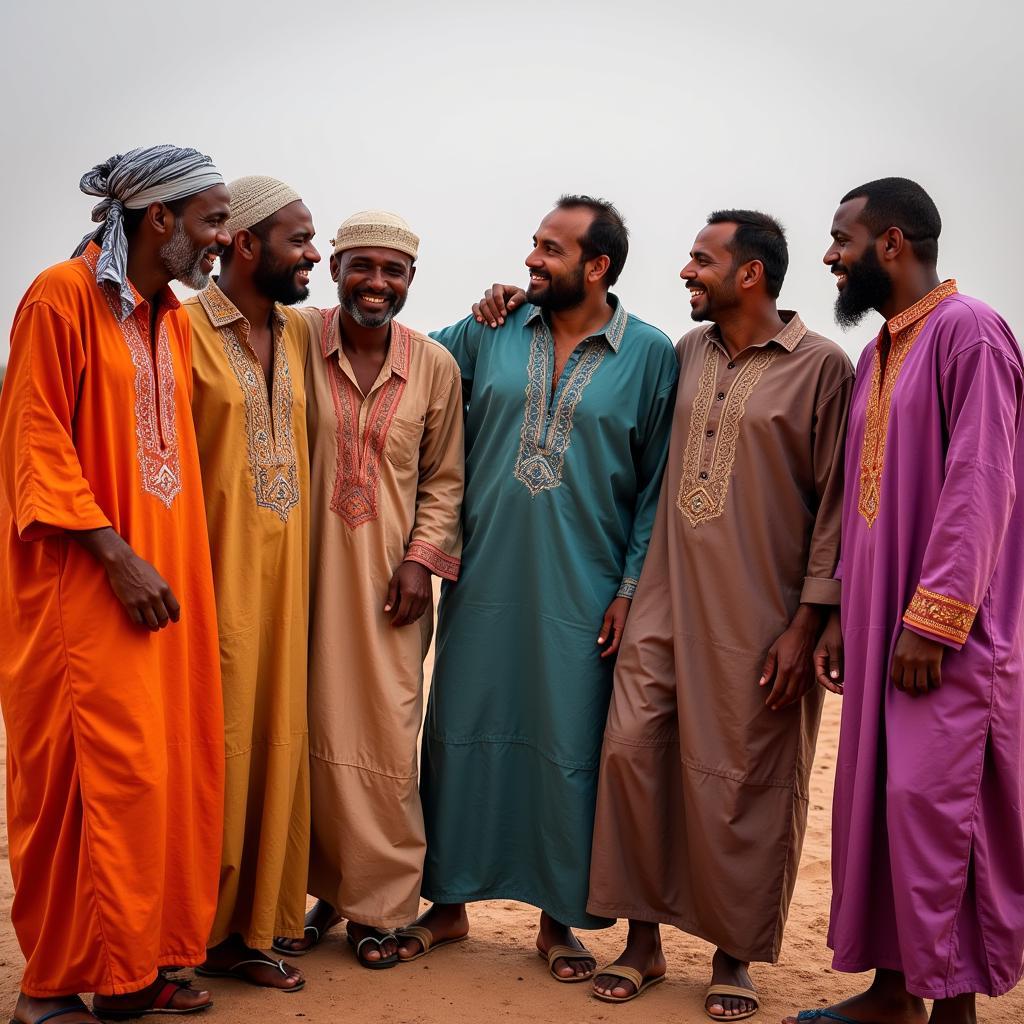 Men in North Africa wearing djellaba
Men in North Africa wearing djellaba
It’s impossible to discuss African dress for men as a single entity. Each region, country, and even ethnic group boasts unique styles, fabrics, and techniques passed down through generations. In North Africa, the flowing djellaba, often paired with a skullcap, offers protection from the desert sun while reflecting Islamic traditions. Moving south to West Africa, we encounter the vibrant and elaborate boubou, a large, flowing robe often made from brightly colored cotton and adorned with intricate embroidery.
Beyond the Boubou: Exploring West African Styles
While the boubou reigns supreme for formal occasions in West Africa, the region offers a plethora of other styles for men. Kente cloth, originating from Ghana, features intricate geometric patterns woven on a narrow loom, representing proverbs, historical events, or social status. Today, kente cloth is not only used for traditional garments but also inspires contemporary fashion designs, appearing in shirts, trousers, and accessories.
A Fusion of Tradition and Modernity
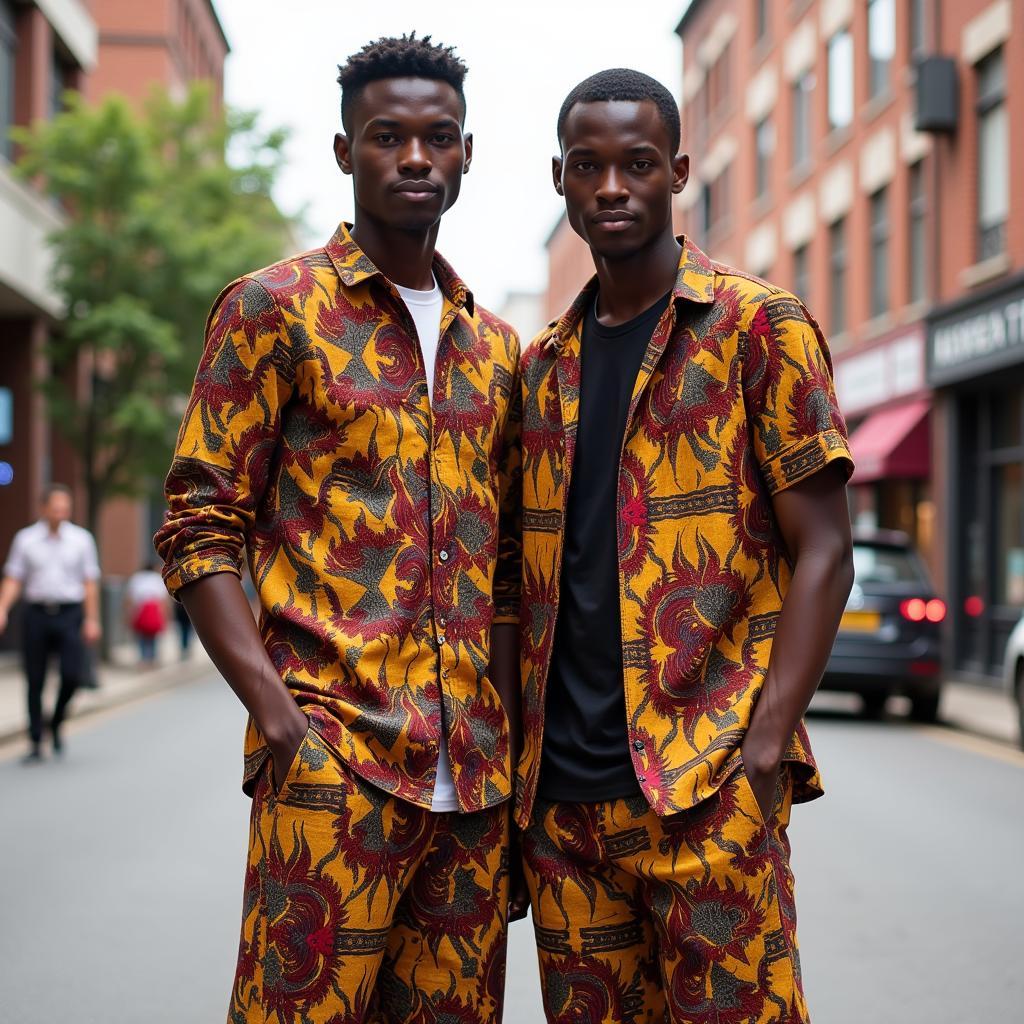 African men in contemporary fashion with traditional influences
African men in contemporary fashion with traditional influences
Modern African men’s clothing reflects a dynamic interplay of traditional roots and global influences. Designers across the continent are reimagining classic silhouettes and incorporating indigenous fabrics like kente, mudcloth, and Aso Oke into contemporary designs. This fusion of heritage and modernity has captivated the global fashion scene, with African designers gaining increasing recognition for their unique aesthetics and craftsmanship.
The Significance of African Dress for Men
Beyond their aesthetic appeal, garments for men in Africa hold deep cultural significance. They can signify social status, marital status, profession, or even religious affiliation. For example, a brightly colored agbada worn by a Yoruba chief in Nigeria conveys his authority and prestige. Similarly, the intricate beadwork and feathers adorning the attire of a Maasai warrior in Kenya speak volumes about his courage and prowess.
Conclusion
African dress for men is a testament to the continent’s rich cultural heritage and artistic ingenuity. From the flowing robes of the north to the intricate patterns of the south, each garment tells a story of tradition, identity, and style. As African fashion continues to evolve and captivate the world, it serves as a powerful reminder of the continent’s enduring legacy and vibrant future.
